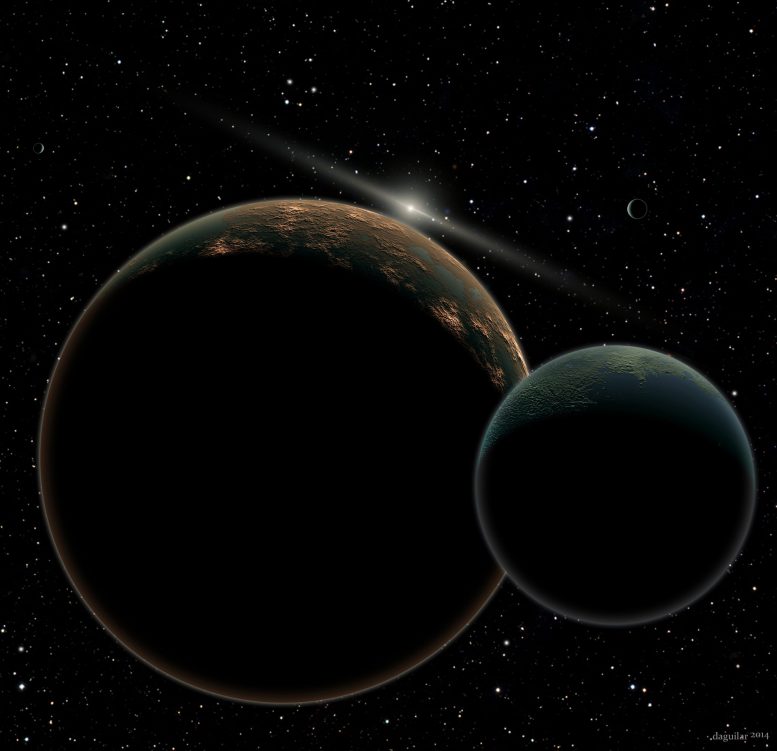
The Harvard-Smithsonian Center for Astrophysics held a new debate to discuss the planetary status of Pluto.
What is a planet? For generations of kids, the answer was easy. A big ball of rock or gas orbited our Sun, and there were nine of them in our solar system. But then astronomers started finding more Pluto-sized objects orbiting beyond Neptune. Then they found Jupiter-sized objects circling distant stars, first by the handful and then by the hundreds. Suddenly the answer wasn’t so easy. Were all these newfound things planets?
Since the International Astronomical Union (IAU) is in charge of naming these newly discovered worlds, they tackled the question at their 2006 meeting. They tried to come up with a definition of a planet that everyone could agree on. But the astronomers couldn’t agree. In the end, they voted and picked a definition that they thought would work.
The current, official definition says that a planet is a celestial body that:
- is in orbit around the Sun,
- is round or nearly round, and
- has “cleared the neighborhood” around its orbit.
But this definition baffled the public and classrooms around the country. For one thing, it only applied to planets in our solar system. What about all those exoplanets orbiting other stars? Are they planets? And Pluto was booted from the planet club and called a dwarf planet. Is a dwarf planet a small planet? Not according to the IAU. Even though a dwarf fruit tree is still a small fruit tree, and a dwarf hamster is still a small hamster.
Eight years later, the Harvard-Smithsonian Center for Astrophysics decided to revisit the question of “What is a planet?” On September 18th, we hosted a debate among three leading experts in planetary science, each of whom presented their case as to what a planet is or isn’t. The goal: to find a definition that the eager public audience could agree on!
Science historian Dr. Owen Gingerich, who chaired the IAU planet definition committee, presented the historical viewpoint. Dr. Gareth Williams, associate director of the Minor Planet Center, presented the IAU’s viewpoint. Dr. Dimitar Sasselov, director of the Harvard Origins of Life Initiative, presented the exoplanet scientist’s viewpoint.
Gingerich argued that “a planet is a culturally defined word that changes over time,” and that Pluto is a planet. Williams defended the IAU definition, which declares that Pluto is not a planet. Sasselov defined a planet as “the smallest spherical lump of matter that formed around stars or stellar remnants,” which means Pluto is a planet.
In 2006, when the International Astronomical Union voted on the definition of a “planet,” confusion resulted. Almost eight years later, many astronomers and the public are still as uncertain about what a planet is as they were back then. Tonight, three different experts in planetary science will present each of their cases as to what a planet is or isn’t. And then, the audience gets to vote… is Pluto in or out?
After these experts made their best case, the audience got to vote on what a planet is or isn’t and whether Pluto is in or out. The results are in, with no hanging chads in sight.
According to the audience, Sasselov’s definition won the day, and Pluto IS a planet.
Headquartered in Cambridge, Massachusetts, the Harvard-Smithsonian Center for Astrophysics (CfA) is a joint collaboration between the Smithsonian Astrophysical Observatory and the Harvard College Observatory. CfA scientists, organized into six research divisions, study the origin, evolution, and ultimate fate of the universe.
Never miss a breakthrough: Join the SciTechDaily newsletter.